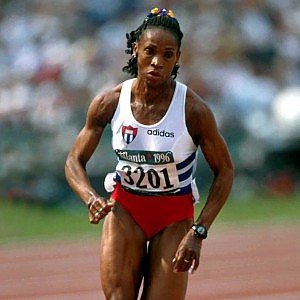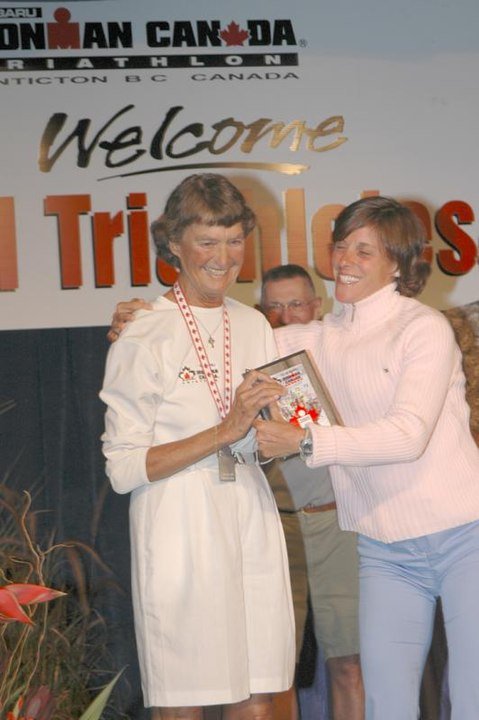In a sport where careers often fade by the mid-20s, Canadian gymnast Ellie Black defies expectations. Through broken bones, torn ligaments, and pandemic disruptions, she’s emerged as Canada’s most decorated gymnast with no plans of stopping. This is the story of resilience personified.
The crowd’s roar at Bercy Arena in Paris reached a crescendo as Ellie Black completed her vault rotation. Sixth place at her fourth Olympic Games – a feat no Canadian artistic gymnast before her had achieved. But for anyone who knows Black’s journey, merely being on that Olympic stage represented something far more remarkable than any medal: the triumph of an unquenchable spirit.
“I come back because I love it,” Black told Olympics.com after the Paris Games. A simple statement that belies the countless hours of rehabilitation, the tears shed during recovery, and the mental fortitude required to keep returning to a sport that has repeatedly broken her body – but never her resolve.
Early Life of Ellie Black: From Halifax to the Olympic Dream
Born September 8, 1995, in Halifax, Nova Scotia, Ellie Black grew up in a family where athletic pursuits were the norm. Her sister Karen competed in figure skating, and younger brother William also dabbled in gymnastics. Initially, Black pursued both figure skating and gymnastics before committing fully to the latter at age eight.
The decision proved prescient. By nine, she had transitioned into competitive gymnastics, inspired by watching the 2004 Olympics. Her coaches at Halifax Alta Gymnastics Club quickly recognized they had a special talent on their hands – a remarkably energetic child with a natural aptitude for jumping and fearlessness that can’t be taught.
Ellie Black’s Olympic dreams crystallized at twelve when she watched fellow Canadian David Kikuchi compete at the 2008 Beijing Olympics. “Seeing someone from my own club at the Olympics made me realize it wasn’t just a distant dream,” she once reflected. “It became something tangible, something I could actually work toward.”
But the path to Olympic glory would prove far from straightforward.
Overcoming Injuries: Ellie Black’s First Olympic Setbacks
In 2011, just as her senior career was taking off, Ellie Black endured what would have been career-ending injuries for many athletes: a dislocated and broken toe, a dislocated elbow, and a broken thumb—all requiring surgery.
Most gymnasts would have written off their Olympic aspirations facing such a devastating combination. Ellie Black, however, approached rehabilitation with the same precision she brought to her routines. Barely a year after these injuries, she was representing Canada at the 2012 London Olympics.
Then came another cruel twist. Having qualified for the Olympic vault final – an extraordinary achievement for a Canadian gymnast – Black experienced every gymnast’s nightmare. On her first attempt, she landed awkwardly, immediately crumpling to the mat with an ankle injury. The video footage is difficult to watch – not just for the physical pain evident on her face, but for the devastating realization that an opportunity four years in the making had vanished in seconds.
“That was incredibly difficult to process,” Black admitted years later. “You work your entire life for that Olympic moment, and then it’s gone in an instant. There’s no reset button.”
Lesser athletes might have surrendered to the what-ifs and bitter disappointment. Black channeled it into fuel for her comeback.
Redemption at Rio 2016: Ellie Black’s Best-Ever Canadian Performance
The 2016 Rio Olympics represented Ellie Black’s redemption tour. Despite battling nagging ankle and wrist problems, she delivered Canada’s best-ever Olympic performance in the women’s all-around, finishing fifth. For perspective, this result in a sport historically dominated by powerhouse nations like the United States, Russia, China, and Romania was nothing short of extraordinary.
Yet even greater challenges lay ahead. In 2019, just months before the Tokyo Olympics, Ellie Black suffered perhaps her most devastating setback at the World Championships in Stuttgart. The diagnosis was grim: two completely torn ankle ligaments requiring major surgery.
“When they told me the extent of the injury, my first thought was, ‘That’s it for Tokyo,'” Black revealed in an interview with FloGymnastics. “The timeline for recovery simply didn’t align with Olympic qualification.”
Then came an unexpected reprieve when COVID-19 forced the postponement of the Tokyo Games. What initially seemed like a global catastrophe became, for Black, an opportunity for proper healing.
Training Through COVID-19: How Ellie Black Stayed Olympic-Ready
Like athletes worldwide, Black faced unprecedented challenges when COVID-19 lockdowns shuttered training facilities in March 2020. The specialized equipment essential for gymnastics – particularly apparatus like uneven bars – simply couldn’t be replicated at home.
“I went from training 25-30 hours a week in a fully-equipped gym to essentially doing conditioning exercises in my living room,” Ellie Black told Best Health Magazine. “It was like a concert pianist suddenly having to practice on a toy keyboard.”
She adapted with characteristic ingenuity, joining virtual yoga sessions with teammates and focusing on strength training elements that required minimal equipment. When restrictions in Nova Scotia eventually eased, she faced the daunting task of rebuilding skills that had atrophied during the hiatus.
“Skills you’ve done thousands of times suddenly feel foreign,” she explained. “Muscle memory fades faster than you’d think.”
The postponement of the Tokyo Olympics provided the silver lining to an otherwise dark cloud. The extra year gave Ellie Black’s surgically repaired ankle crucial recovery time. Yet ironically, fate wasn’t finished testing her resilience.
Tokyo 2020: Injury, Withdrawal, and a Historic Comeback on Beam
Just days before her all-around competition at the Tokyo Olympics, Black sprained her ankle during training. After consulting with medical staff, she made the agonizing decision to withdraw from the all-around final – an event where she had legitimate medal aspirations.
For many elite athletes, withdrawing from Olympic competition represents the ultimate disappointment. Ellie Black transformed it into yet another demonstration of her remarkable mental fortitude, refocusing on the balance beam final where she was cleared to compete.
The result? A fourth-place finish – Canada’s best-ever Olympic result in any women’s artistic gymnastics event. Missing bronze by mere tenths of a point would have crushed most competitors. Black viewed it as validation of her decision-making and recovery process.
“Sometimes the greatest victory isn’t standing on the podium,” Black reflected on Team Canada’s website. “It’s simply having the courage to compete when everything is telling you that you can’t.”
The Ellie Effect
Beyond her personal accomplishments – which are staggering – Ellie Black has fundamentally altered Canada’s gymnastics landscape. Prior to her emergence, Canadian gymnasts were respected but rarely considered medal threats at major international competitions.
Black shattered that ceiling with her 2017 World Championship silver medal in the all-around – a first for any Canadian gymnast. She further cemented her legacy at the 2022 World Championships, helping Canada secure its first-ever team medal at that level.
Her dominance at the Pan American Games borders on mythical: ten total medals across two Games, including back-to-back all-around golds – a feat no female gymnast had previously achieved. At the 2015 Toronto Pan Am Games, she became the most decorated Canadian athlete of the entire competition.
Even more remarkably, she’s captured the Canadian National all-around title seven times: 2013, 2014, 2015, 2017, 2018, 2019, and 2024. This sustained excellence – spanning more than a decade – is virtually unheard of in women’s artistic gymnastics.
Sportsmanship and Leadership: Ellie Black Wins the Fair Play Award
The Paris 2024 Olympics represented Ellie Black’s fourth Olympic appearance, making her the first Canadian artistic gymnast to achieve this milestone. Beyond her individual sixth-place finishes in all-around and vault, she helped guide Canada to a fifth-place team finish, matching their best-ever Olympic result from London 2012.
But perhaps her most meaningful achievement came off the competition floor. During qualifying rounds, Black and teammate Shallon Olsen were captured comforting French gymnast Mélanie de Jesus dos Santos after a difficult performance. This spontaneous act of sportsmanship resonated so deeply that Black was awarded the prestigious Paris 2024 Fair Play Award – a recognition determined by public vote after nominations from athletes and fans worldwide.
“In that moment, I wasn’t thinking about competitions or medals,” Black explained after receiving the award. “I just saw another athlete struggling, and that transcends national uniforms. We’ve all been there.”
Mental Fortitude: The Invisible Skill
Throughout her career, Black has been refreshingly candid about the mental challenges elite athletes face. Long before the topic entered mainstream conversation through figures like Simone Biles, Black was advocating for mental health awareness in sports.
She employs a comprehensive toolkit of mental preparation techniques: meditation, breathing exercises, visualization, and maintaining open communication with her support network. Working with a sports psychologist has been integral to her ability to navigate the extreme pressures of international competition.
When Simone Biles withdrew from several Olympic events in Tokyo citing mental health concerns, Ellie Black offered immediate and unequivocal support. “Athletes are human beings first,” she emphasized. “The courage it takes to prioritize your wellbeing when the world expects you to perform is immeasurable.”
This compassionate perspective extends to her role as team leader. Younger gymnasts consistently describe Black as kind, patient, and encouraging. “She never makes you feel like you’re bothering her with questions,” one teammate noted. “Even when she’s preparing for her own routines, she’ll take time to offer advice or just a reassuring word.”
What’s Next for Ellie Black? The Road to LA 2028
At 29 – an age when most female gymnasts have long retired – Black is eyeing what would be an unprecedented fifth Olympic appearance at Los Angeles 2028. In a recent interview, she confirmed she has no immediate plans to retire, although she acknowledges the need to be strategic about training and competitions to preserve her body.
“My approach has evolved,” she explained. “I’m more selective about competitions, more intentional about recovery, and more attentive to what my body is telling me. That’s allowed me to extend my career in ways I never imagined possible.”
After Paris, Ellie Black participated in the Gold Over America Tour with Simone Biles – a gymnastics exhibition celebrating female athletes that traveled throughout North America. For Black, the tour represented an opportunity to connect with fans and inspire the next generation of gymnasts in a non-competitive environment.
Ellie Black’s Legacy: More Than Medals, a Model of Resilience
As Ellie Black looks toward the possibility of a fifth Olympics, her legacy is already secure: most decorated Canadian gymnast ever, first four-time Olympian in Canadian artistic gymnastics, holder of multiple “best-ever” Canadian results at international competitions, and recipient of the Olympic Fair Play Award.
But perhaps her most enduring contribution transcends medals and records. In a sport often associated with youthful prodigies, Black has redefined what’s possible through sustainable training, mental resilience, and an unwavering passion for gymnastics.
“Every time I think I might be finished, I realize I’m still having fun,” Black told Olympic.ca. “As long as my body allows it and I still feel that joy stepping into the gym, why would I stop?”
It’s that perspective – finding joy in the journey despite its brutal challenges – that makes Ellie Black not just a great gymnast, but a model for athletes across all sports. In a world obsessed with medals and podiums, she reminds us that true greatness isn’t measured solely by hardware, but by the spirit with which you pursue excellence.
And by that measure, Ellie Black may be the greatest Canadian gymnast of all time.
From the Vault to the Ice: When Resilience Becomes a Legacy
In the world of Olympic sports, certain stories of perseverance transcend their disciplines, speaking to something deeper about the human spirit. Ellie Black’s journey through gymnastics – navigating broken bones, torn ligaments, and remarkable comebacks – represents one such narrative.
But she’s not alone in the pantheon of athletes who’ve turned heartbreak into triumph. If Black’s story of resilience resonated with you, the saga of American speed skater Dan Jansen offers a powerful parallel. Like Black, Jansen experienced crushing disappointments on the Olympic stage, only to emerge as an icon of determination.
While Black bounced back from devastating injuries across four Olympic cycles, Jansen endured perhaps the most heart-wrenching Olympic journey in winter sports history. Hours after learning of his sister’s death from leukemia at the 1988 Calgary Olympics, he fell during his race. Four years later in Albertville, he fell again – before finally capturing that elusive gold medal in his final Olympic race, setting a world record in the process.
Two athletes from different countries, different sports, and different eras – united by an uncommon resilience that turned their Olympic heartbreaks into legacies that inspire far beyond the medals they won.
Discover Dan Jansen’s extraordinary decade-long pursuit of Olympic redemption at https://inspiringathletes.com/dan-jansen/
Photo: De CBC Sports – YouTube: https://www.youtube.com/watch?v=zXqosNAmd7g – View/save archived versions on archive.org and archive.today, CC BY 3.0,




